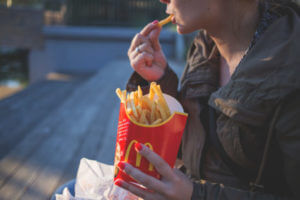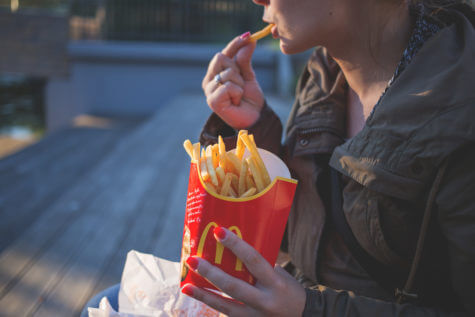NEW YORK — A recent study conducted by New York University researchers found that the majority of food and beverage products promoted through television and online sponsorships of major sports events in the U.S. are unhealthy. The researchers also theorized this could be contributing to the obesity epidemic sweeping the U.S.
The NYU team analyzed the Nielsen ratings of televised sports events among children between the ages of two and 17 in 2015. They examined the sponsorship agreements between food and beverage manufacturers and the top ten sports leagues with the most youth viewers, which include the National Football League, the National Hockey League, Major League Baseball, the National Basketball Association, and Little League Baseball. The NFL had ten food food and beverage sponsors, the most. Perhaps most disturbingly, Little League Baseball had six sponsorships, third most of the group.

Among the sponsorships, more than 75 percent of the and beverages being promoted were rated “unhealthy” by the Nutrient Profile Model (NPM). The NPM measures nutritious value in foods in the United Kingdom and Australia, scoring products on a scale of 0-100. A score of “64” or higher indicates the food is considered “nutritious.” The U.S does not have a comparable set of guidelines.
“The U.S. is in the throes of a child and adolescent obesity epidemic, and these findings suggest that sports organizations and many of their sponsors are contributing, directly and indirectly, to it,” says lead investigator Dr. Marie Bragg, assistant professor of Population Health at the NYU School of Medicine, in a press release. “Sports organizations need to develop more health-conscious marketing strategies that are aligned with recommendations from national medical associations.”
According to the data, more than 412 million children in watched events in 2015 for at least one of the ten organizations. The researchers calculated more than 230 sponsors who ran ads during the 500 most-watched programs, with food or non-alcoholic beverages accounting for nearly 19% of all commercials. Using the NPM scale, about 76% of the products failed to score the “nutritious” value of 64.
“Unhealthy food and beverage promotion through organized sports is pervasive,” says Bragg. “These organizations must put forth a better effort to protect their youngest and most impressionable fans.”
The full study was published in the April 2018 edition of the journal Pediatrics.
